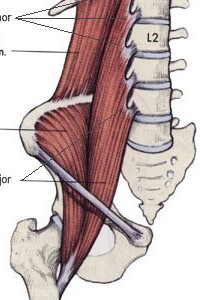Managing stress isn’t just about feeling calmer or being more productive—it’s a critical factor in maintaining your overall health, particularly when it comes to managing your weight and midsection. By addressing stress head-on, you can significantly improve not only your physical appearance but also your quality of life.
The Connection Between Stress and Belly Fat
The human body wasn’t designed to handle the relentless pressures of modern life. From juggling deadlines to navigating rush hour and worrying about bills, our daily routines often leave little room for relaxation. This constant state of stress triggers a physiological response that can have lasting effects on our health, particularly our waistlines.
When you’re stressed, your body produces adrenaline to help you cope. This response releases fatty acids into the bloodstream to provide a quick source of energy. At the same time, your adrenal glands produce cortisol, another stress hormone that encourages your body to store fat in the abdominal region. Over time, this can lead to an increase in visceral fat, the type of fat that surrounds your internal organs and is linked to numerous health problems, including heart disease, diabetes, and metabolic syndrome.
Interestingly, the relationship between stress and weight gain is cyclical. The more weight you carry in your midsection, the more cortisol your body produces when under pressure. This creates a feedback loop that makes it harder to manage both your stress levels and your weight.
Breaking the Cycle: Strategies for Managing Stress and Belly Fat
To combat the harmful effects of stress on your midsection and overall health, it’s essential to adopt effective stress management strategies. Here’s how:
Prioritize Quality Sleep
Sleep is one of the most powerful tools for managing stress and maintaining a healthy weight. When you don’t get enough rest, your cortisol levels rise, making it harder for your body to burn fat and retain muscle mass. Aim for at least 7–8 hours of high-quality sleep each night to give your body the chance to recover and reset.
Stay Organized
Disorganization and procrastination can exacerbate stress. By planning and organizing your schedule, you can reduce unnecessary stressors and gain a sense of control over your day. Whether it’s meal prepping, setting clear priorities, or scheduling breaks, small steps toward organization can make a big difference.
Set Goals and Celebrate Achievements
Having something to look forward to can make stress more manageable. Set realistic goals for yourself, whether it’s related to fitness, work, or personal growth, and reward yourself when you achieve them. This sense of accomplishment fosters hope and motivation, making it easier to stay on track.
Moderate Your Caffeine and Alcohol Intake
While a cup of coffee or a glass of wine might seem like a good way to cope with stress, excessive consumption can actually make things worse. Both caffeine and alcohol can dehydrate your body and elevate cortisol levels. Limit yourself to no more than two servings of each per day, and be mindful of how they affect your mood and energy levels.
Boost Your Vitamin C Intake
Vitamin C is a powerful antioxidant that helps regulate cortisol levels. It also supports your immune system, which can become compromised during periods of chronic stress. Aim for about 1,000 milligrams of Vitamin C daily, divided into smaller doses throughout the day for optimal absorption.
Commit to Regular Exercise
Exercise is one of the most effective ways to combat stress and improve your physical and mental health. Both resistance training and cardiovascular training release endorphins, the body’s natural “feel-good” chemicals. These hormones help reduce stress, improve mood, and boost self-esteem. Regular exercise also increases muscle mass, which can raise your metabolic rate and help you burn more calories at rest.
Fuel Your Body with Proper Nutrition
Your diet plays a crucial role in stress management and weight maintenance. Focus on whole, nutrient-dense foods that provide sustained energy and support overall health. Incorporate plenty of lean proteins, healthy fats, complex carbohydrates, and fiber into your meals. Avoid processed foods and sugary snacks, which can lead to energy crashes and exacerbate stress.
The Mind-Body Connection
Stress doesn’t just affect your body—it impacts your mind as well. When you’re stressed, it’s harder to think clearly, make decisions, and stay motivated. By managing your stress levels, you’ll not only improve your physical health but also enhance your mental clarity and emotional well-being.
Mindfulness practices like meditation, deep breathing, and yoga can be incredibly effective for reducing stress. These techniques help calm the nervous system, lower cortisol levels, and improve your overall sense of balance and control. Even taking a few minutes each day to focus on your breath or engage in gentle stretching can make a significant difference.
Why Stress Management Matters - Final Thoughts
Effective stress management isn’t just about feeling better—it’s about living better. By reducing stress, you can lower your risk of chronic diseases, improve your sleep, and maintain a healthier weight. It’s an investment in your long-term health and happiness.
So, the next time you feel overwhelmed by life’s challenges, remember that managing your stress is the first step toward managing your midsection and enhancing your overall quality of life. Take a deep breath, lace up your sneakers, and start taking control of your stress today.Stress is an inevitable part of life, but it doesn’t have to control you. With the right strategies and mindset, you can turn stress into an opportunity for growth and self-improvement. By prioritizing sleep, staying organized, eating well, and committing to regular exercise, you’ll be well on your way to a healthier, happier, and more balanced life.
Remember, the journey to stress management and midsection management is a marathon, not a sprint. Take it one step at a time, and celebrate every small victory along the way.
For more tips on stress management and healthy living, visit Joyzone.com.
This article is editorial in nature and does not constitute medical advice. Always consult a physician for any health-related concerns, whether psychological or physical.













